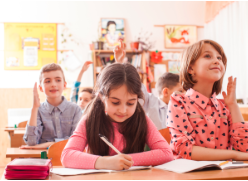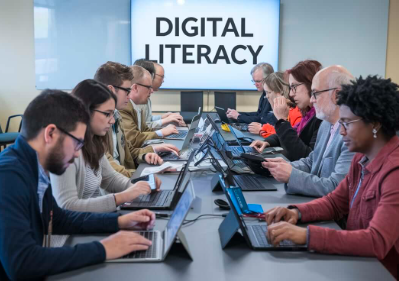In 2025, students are navigating an education landscape shaped by digital tools, flexible learning environments, and high expectations. Amid these changes, one timeless habit continues to stand out as a powerful contributor to academic growth: self-reflection. This personal process—of looking inward to understand one’s thoughts, actions, and outcomes—plays a pivotal role in shaping a student’s learning journey.
Why Self-Reflection Matters
Self-reflection helps students become active participants in their own education. Instead of passively receiving information, reflective learners regularly pause to consider what they’ve learned, how they’ve approached tasks, and what could be improved. This habit cultivates a deeper understanding of course material, builds self-awareness, and promotes long-term retention.
In a world where students are often distracted by screens and fast-paced schedules, self-reflection provides a much-needed moment of clarity. It encourages mindfulness, strengthens focus, and allows learners to make more intentional choices about their academic goals.
Supporting Growth Mindsets
One of the key benefits of self-reflection is its impact on mindset. Students who reflect on their efforts—especially during challenges—are more likely to develop resilience. By analyzing what went wrong and how to improve, learners begin to view setbacks not as failures but as learning opportunities. This perspective supports a growth mindset, which research shows is essential for sustained academic success.
Simple Ways to Practice Self-Reflection
In 2025, integrating reflection into a busy school day doesn’t require complex tools. Here are a few simple practices students can adopt:
Journaling: Writing about daily study experiences helps identify strengths and areas for improvement.
Exit Tickets: At the end of each lesson, answering a quick question like “What did I learn today?” promotes immediate reflection.
Goal Check-ins: Regularly reviewing personal academic goals keeps students aligned with their objectives.
Peer Discussions: Talking with classmates about learning experiences can reveal new perspectives and reinforce understanding.
The Educator’s Role
Teachers play a vital part in nurturing reflective habits. When educators model self-reflection—sharing what they’ve learned from classroom challenges or how they adjust their methods—they inspire students to do the same. Providing opportunities for student feedback and encouraging open conversations about learning progress also fosters a culture where reflection is valued.
Preparing for Future Success
In today’s rapidly evolving world, students need more than just subject knowledge—they need self-awareness, adaptability, and critical thinking. Self-reflection builds all three. By understanding themselves as learners, students are better equipped to manage time, set realistic goals, and face academic or career challenges with confidence.
Final Thoughts
As we move through 2025, self-reflection continues to be a quiet yet powerful force behind student success. It’s not about perfection, but about progress. When students take time to pause, think, and grow, they create meaningful pathways to achievement—inside and outside the classroom.














